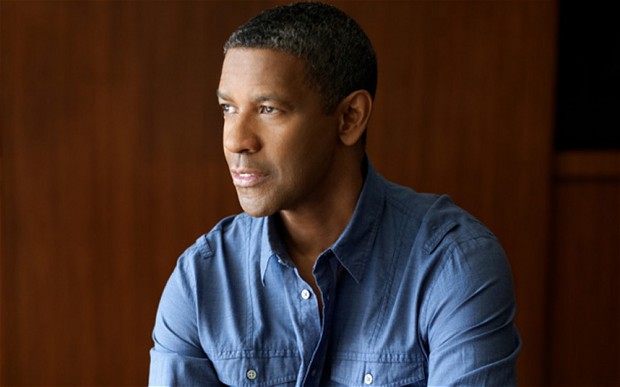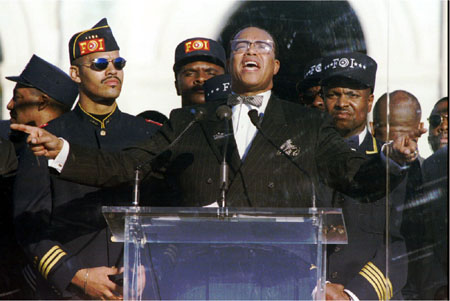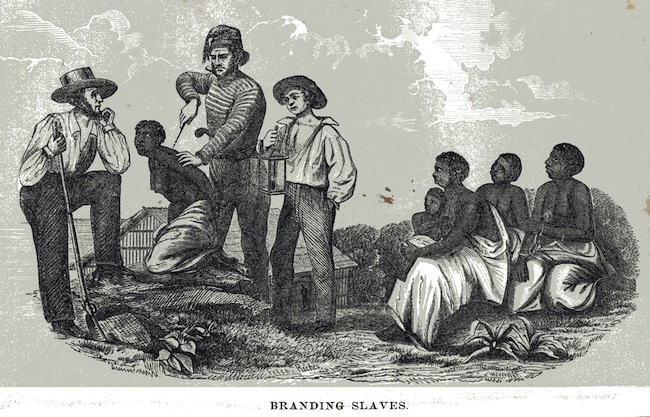1836
Alexander Twilight becomes the first African American elected to public office when he wins a seat on the Vermont legislature; in 1845, William Leidesdorff becomes the second when he is named sub-consul to Yerba Buena, part of the Mexican territory that would later become San Francisco
1866
Edward G. Walker and Charles L. Mitchell become the first blacks elected to a U.S. state legislature (Massachusetts House of Representatives)
1868
John Willis Menard of Louisiana is the first African American to be elected to Congress, but Congressman James A. Garfield contests the election by claiming it is “too early to admit a Negro to the U.S. Congress”; the following year, Menard pleads his own case but is denied his elected position
1869
Ebenezer Don Carlos Bassett becomes the first official African American diplomat when President Grant names him minister of Haiti
1870
Mississippi legislature elects Hiram Rhoades Revels to be the first African American U.S. Senator, filling Jefferson Davis’s unexpired term
1872
Black delegates Robert B. Elliott, Joseph H. Rainey, and John R. Lynch deliver addresses at the Republican National Convention in Philadelphia
John R. Lynch wins election to the U.S. House of Representatives (R-Mississippi)
1874
Blanche K. Bruce becomes the first African American to serve in the U.S. Senate (R-Mississippi) and serves as a chairman of the Select Committee to Investigate the Freeman’s Savings and Trust Company
1877
Under President Hayes, Frederick Douglass serves as the first African American U.S. Marshal of Washington, D.C.
1938
Crystal Bird Fauset becomes the first African American woman to be elected to a state legislature (Pennsylvania House of Representatives)
1953
Hulan Jack is sworn in as Manhattan borough president, becoming the first African American to hold a major elected position in a major U.S. city
1954
Charles Mahoney becomes the first African American delegate to serve on the U.S. delegation to the United Nations
1955
E. Frederic Morrow becomes the first African American to hold an executive position in the White House when President Eisenhower names him administrative officer for special projects
1958
Clifton R. Wharton Sr. becomes the first African American to head a U.S. embassy in Europe when he is confirmed as ambassador to Romania; three years later, he is named ambassador to Norway
1961
Robert C. Weaver becomes the first African American to head a major U.S. government agency when he is chosen as administrator of the Housing and Home Finance Agency
1964
Constance Baker Motley is the first African American woman elected to the New York State Senate; she becomes Manhattan borough president in 1965 and, later, a federal district court judge
1966
Robert C. Weaver becomes the first African American cabinet member (secretary of housing and urban development under President Johnson)
Andrew Brimmer becomes the first African American governor of the Federal Reserve Board (nominated by President Johnson)
1968
Shirley Chisholm is the first African American woman to be elected to the U.S. House of Representatives (D-New York)
1973
Maynard Jackson is elected mayor of Atlanta, becoming the first African American to be elected as mayor of a major Southern city
1977
Patricia R. Harris becomes the first African American woman to hold a position on the U.S. cabinet (secretary of housing and urban development under President Carter)
Andrew Young becomes the first African American U.S. ambassador to the U.N. (nominated by President Carter)
1983
Harold Washington becomes the first black mayor of Chicago
1984
Rev. Jesse Jackson mounts a high-profile campaign to become the Democratic candidate for president; the nomination eventually goes to Walter Mondale of Minnesota
1988
Colin Powell is the first African American to serve as chairman of the Joint Chiefs of Staff
1989
David Dinkins becomes the first black mayor of New York City
1990
Washington, D.C., voters elect lawyer Eleanor Holmes Norton as their nonvoting representative in the U.S. House of Representatives
1991
After controversial confirmation hearings, Clarence Thomas becomes the second African American ever to serve as a justice on the U.S. Supreme Court
1992
Carol Moseley-Braun (D-Illinois) becomes the first African American woman elected to the U.S. Senate
2001
Newly elected President Bush appoints Gen. Colin Powell secretary of state and Dr. Condoleezza Rice national security advisor
Credit: sparknotes











